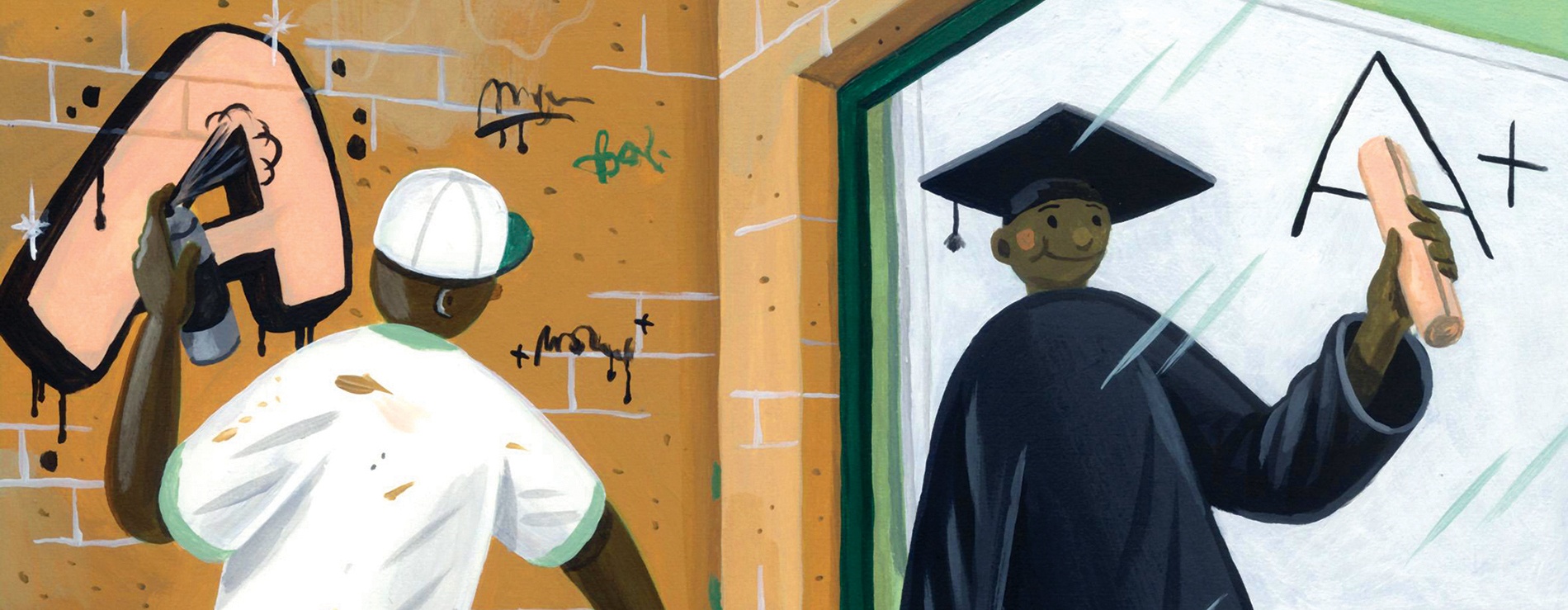At an education conference in 1999, Brett Peiser ’90, the founder of a charter school in Boston, met Norman Atkins ’84, who invited Peiser to visit a charter school he’d founded in Newark, New Jersey. “As soon as I got there,” Peiser recalls, “I was blown away by the teaching, the rigor, the culture of the place.” Atkins made a proposal: what if they and others put together a network of nonprofit public charter schools dedicated to providing a first-rate education to students in poor neighborhoods?
Fast forward to today: Atkins is board chair and Peiser is CEO of Uncommon Schools, which manages 52 schools in New Jersey, New York, and Massachusetts, with a total enrollment of 18,000 students. Brown is enmeshed in the organization’s DNA. Three other board members are David Saltzman ’84, Rob Marcus ’87, and John Kim ’89. School leaders include Katie Yezzi ’94, ’94 MAT,Hannah Solomon ’00, Shradha M. Patel ’00, and Joel Tracy ’09.
In his Newark school, North Star Academy, founded in 1997, Atkins developed the hallmarks that stand today: Classes start at 7:45 a.m. and end at 4:00 p.m. Teachers start the year with two to three weeks of training and prep time, rather than the usual two or three days. They use data to hone students’ skills and refine curricula. Schools are co-led by a principal and a director of operations, which allows the principal to focus on leading instruction.
Atkins, says he was driven to start something above and beyond ordinary urban schools. By all measures, he succeeded: Incredibly, 78 percent of graduates have completed college or are on the path to finish—an especially impressive number given that the vast majority come from families who live below the federal poverty level. Independent researchers found that low-income students perform so well in reading and math that the effects of being at an Uncommon School “completely cancel out the negative effect associated with being a student in poverty.”
One graduate, A.J. Ballard ’18, says North Star prepared him for Brown: “I didn’t have to worry about the catching up phase that some kids from communities of color deal with when they get here.”
Uncommon Schools is on target to expand to 63 schools serving 25,000 students in five years. “The urgency we feel,” Atkins says, “is the need to help low-income kids get great educations and go on to college while we inspire public education broadly.”




